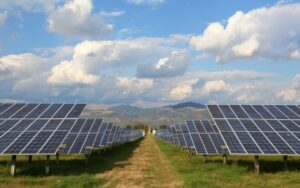Hydrogen-sceptical truck maker MAN to produce limited series of 200 vehicles with H2 combustion engines

Europe’s second-largest truckmaker MAN is to produce a limited series of 200 trucks powered by hydrogen internal combustion engines (H2-ICE) for delivery in a select number of countries, which will mostly be used to carry very heavy loads such as timber or wind turbines.
But the truckmaker reiterated that its focus remains on developing a range of battery-electric models for its zero-emission offering — and warned that fuel cell technology still has some way to go to be “truly market ready”.
MAN’s new hTGX H2 trucks will be fitted with its H45 hydrogen combustion engine — based on its B38 diesel model — and will be manufactured at the company’s existing engine and battery drive train manufacturing plant in Nuremberg, Germany.
“The use of well-known technology enables us to enter the market early and thus provides a decisive impetus for the ramp-up of the hydrogen infrastructure,” said Friedrich Baumann, member of the board of MAN, and responsible for the sales and customer solution area.
The combustion engine appears to replaced the fuel cell as centre stage in MAN’s offering, with the company’s previous promise to develop and trial a fuel cell model in 2025 apparently taking second place.
MAN’s board member for research and development, Frederik Zohm, said that the company “continues to research fuel cell technology based on battery electrics.”
Article continues below the advert
“However, it will still be a few years before the technology is truly market-ready and competitive,” he said.
The 56kg tank on the hTGX can be filled with hydrogen compressed at 700 bar in 15 minutes, MAN said, and with tailpipe emissions of less than 1kg of CO2 per km, will be categorised as a zero-emissions vehicle under the EU’s upcoming road transport regulations.
The trucks will be available for 2025 delivery to customers in Germany, the Netherlands, Norway, Iceland and “selected non-European countries”, for use in applications where trucks will be required to carry specialist loads.
The engines have an energy output of 383kW, and torque of 2,500Nm at revs of 900-1,300, allowing it to carry loads of at least 100 tonnes. To provide a sense of scale, MAN’s massive 15-litre diesel engine has torque of 3,000Nm, and is able to carry loads of up to 250 tonnes, equivalent to a large wind turbine.
Large battery-electric models are already able to carry large payloads, with models with an energy output of upwards of 400kW already on the market.
But MAN particularly envisages the trucks being used to carry loads which require special configuration of the axles, or where the frame has to be built in such as way so as to leave no space for a battery.
The 600km-range trucks could also be used in areas where there is insufficient battery-charging infrastructure, or where hydrogen is widely available or economical to use.
But the giant truckmaker, which holds a 16% slice of the European heavy-duty vehicle market, reiterated its focus on BEVs for the vast majority of its decarbonised transport offering.
“To decarbonise road freight transport, our focus continues to be on battery-electric vehicles,” Baumann said. “These currently have significant advantages over other drive concepts in terms of energy efficiency and operating and energy costs. However, trucks that are powered by hydrogen combustion engines represent a useful addition for special applications and markets.
“We expect that in the future we will be able to best serve the vast majority of our customers’ transport applications with battery-electric trucks. For special applications, hydrogen combustion or, in the future, fuel cell technology can be used as a supplement.”






